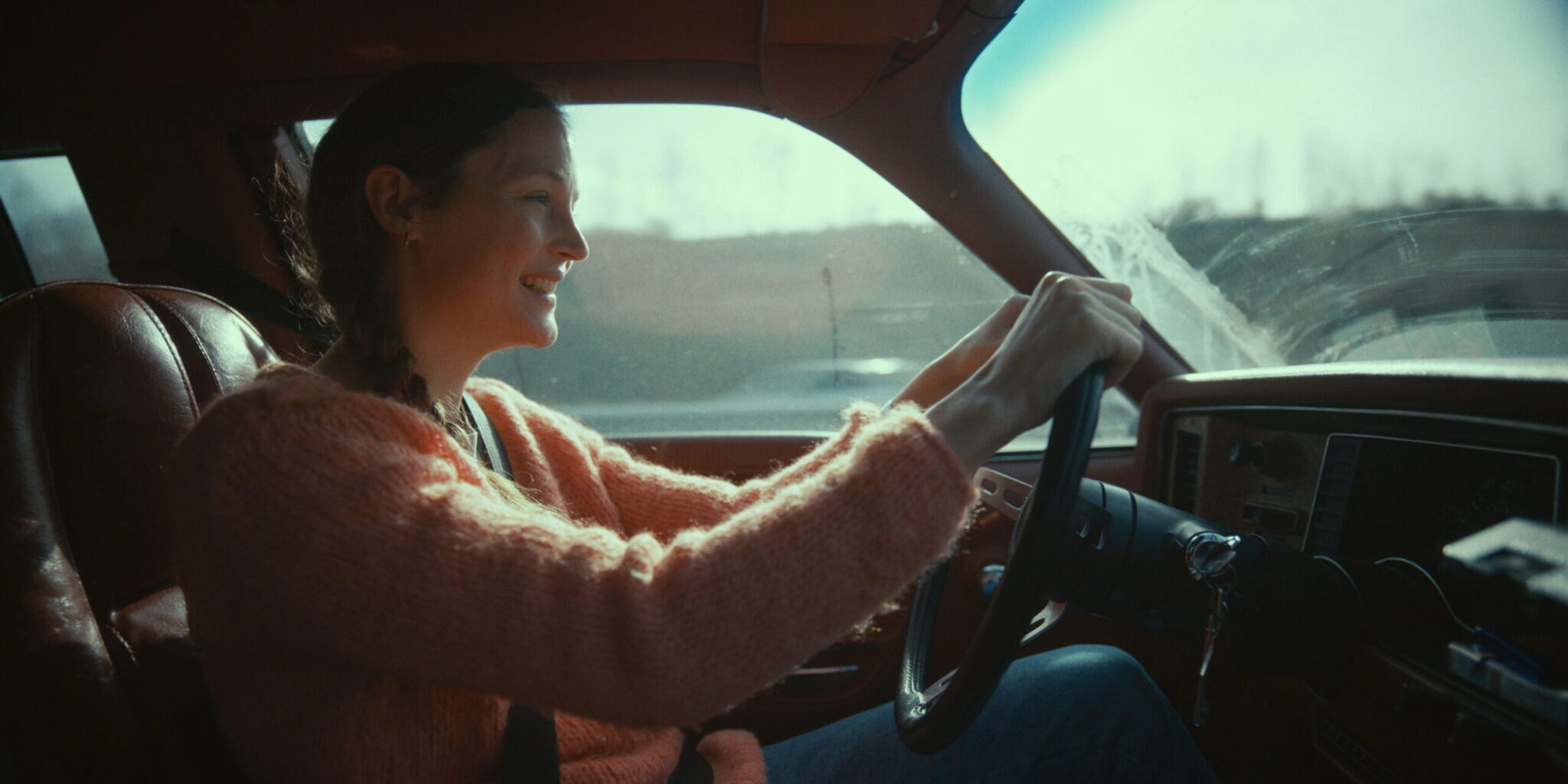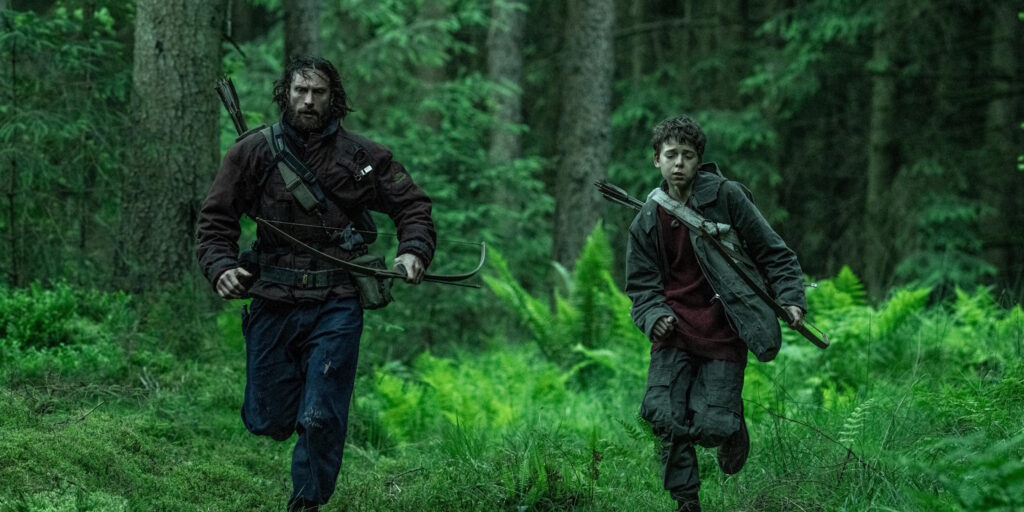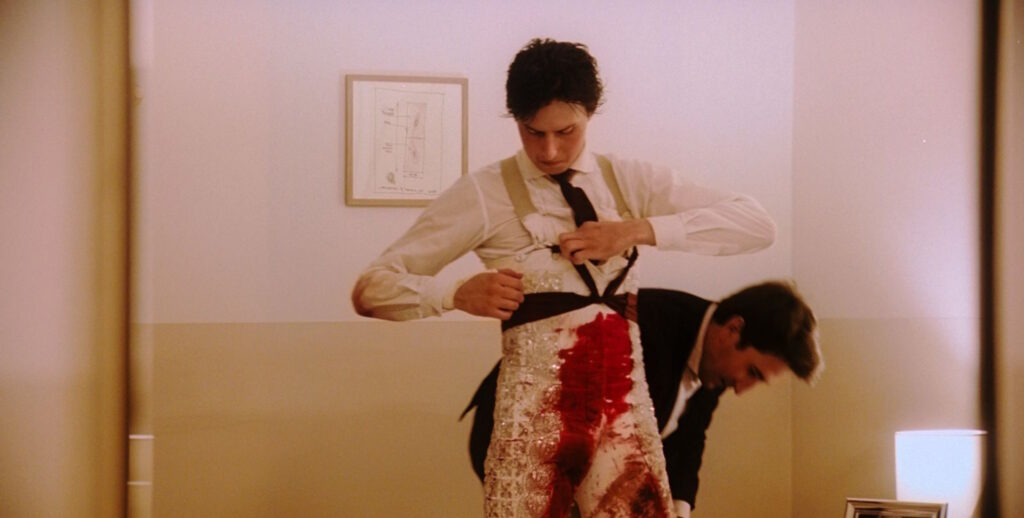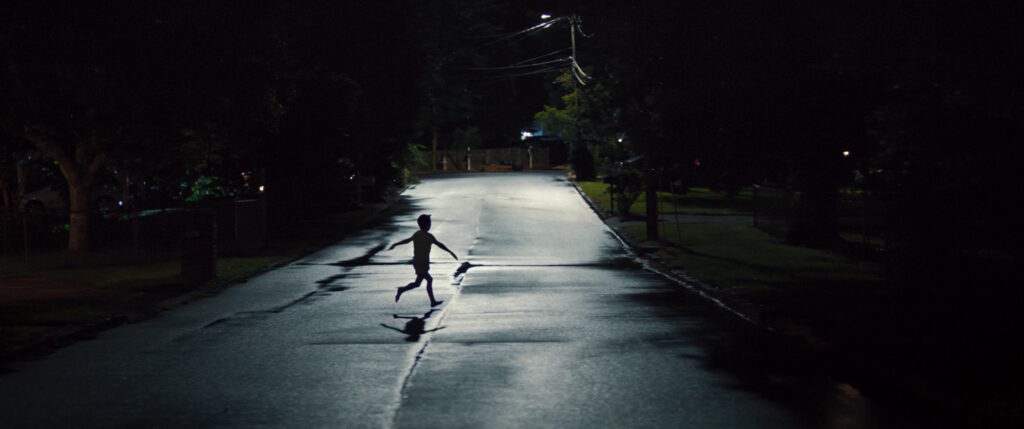[Originally published at Cinema St. Louis’ The Lens.]
Clarisse (Vicky Krieps) has to get out of the house. Early one morning, while her husband, Marc (Arieh Worthalter), and young children, Lucie (Juliette Benveniste) and Paul (Aurèle Grzesik), sleep, she quietly gathers her things and heads toward the door. Clarisse walks out to the garage, pulls the tarp off the old car — circa 1970-something, she can never remember precisely when — and drives off. It is apparent that neither she nor her family will ever recover from this exit. So why did she do it? Or did she even do it in the first place? Writer-director Mathieu Amalric’s film Hold Me Tight doesn’t answer these questions directly, which is not to say that they go unanswered. Instead of giving it to the audience straight, Amalric’s lyrical, kaleidoscopic feature provides a far more expressive explanation. The end result is an achingly poignant study of the grief cycle, one that flickers through denial, anger, bargaining, depression, and acceptance so fast that it creates a zoetropic effect.
While Marc, Lucie, and Paul are left to pick up the pieces from Clarisse’s predawn departure, the former wife and mother of two sets out to start afresh. She drives and drives while the family she deserted does their best to stay afloat. Interspersed, viewers are given small glimpses of what home life was like before her disappearance. None of these snapshots suggest the kind of unbearable environment that might have spurred such an abrupt exit. Lucie practices piano. Paul measures himself in the doorframe, still just a few inches shy of his sister. Marc remains ever-present, the furthest thing from the kind of menacing or intimidating figure that would suggest an abusive or otherwise toxic partner. As Clarisse leaves her former abode far behind, the question only grows stronger: Where is the inciting incident? What was the final straw? What made this happen? Amalric is clearly not interested in providing an answer. (At least not any time soon.)
And yet, profoundly enough, Hold Me Tight is all the better for remaining up in the air for so long. The explanation is there in between the lines, hidden among the cuts from mother to father, daughter, and son. Editor François Gédigier is owed heaps of praise for helping to pull off Amalric’s vision, successfully weaving Clarisse’s mysterious solo journey with the day-to-day of the grieving trio she left behind. Of course, Gédigier is no stranger to extraordinarily complex edits, so it’s no surprise to see his name attached to Amalric’s intricately woven film. After all, he managed to glue together both Lars von Trier’s Dancer in the Dark (2000) and Brian De Palma’s Passion (2012) — two one-of-a-kind undertakings so incredibly ambitious in their direction that a lesser editor might have completely derailed them. Montage-heavy works such as Hold Me Tight walk a thin line between a crudely stitched Frankenstein creation and a meticulously assembled mosaic, and Gédigier negotiates it with remarkable confidence.
As the family grows older, the Clarisse-sized hole in their world stays unchanged. Teenage Lucie (Anne-Sophie Bowen-Chatet) continues to improve on the piano, with her teacher going as far as to hint she could be the real deal. Adolescent Paul (Sacha Ardilly) is as irksome as ever, but his antics come with an extra bite from the angst that has started to take hold. Marc has not moved on, and the love he had (and still has) for his wife, best friend, and co-parent is still as strong as the day she left. Clarisse, on the other hand, has an even larger hollow in her chest. Hers is three times as big and infinitely more raw. The more time they spend separated, the less it seems like a choice. Could it be that this divide between them was not created by choice but rather by fate?
Phenomenally, Vicky Krieps sells every part of her central performance as Clarisse. As Hold Me Tight begins to move faster and faster, writhing and jerking in the clutches suggested by the title, she is nevertheless convincing as a woman plagued by anguish and regret. In truth, it’s one of three notable performances to come from Krieps in 2021 — the other two being her role as Chris in Mia Hansen-Løve’s Bergman Island and her turn as Prisca in M. Night Shyamalan’s inevitably underrated Old. Amalric asks far more of Krieps than Hansen-Løve and Shyamalan combined, requiring her to run to drastically different ends of the emotional gamut from scene to scene. As to be expected, she holds her own, delivering on all fronts even as the material veers into increasingly weighty territory. The level of her talent is directly proportional to the overall effectiveness of this film.
As a contemporary actor-turned-director, the stereotype that hangs above Amalric is one that suggests works replete with indulgent monologues, contrived melodrama, and self-serving hiring decisions that pack the production with friends and family members. (See: Sean Penn, Zach Braff, James Franco, and anyone else who has tried and failed to replicate an Orson Welles- or John Cassavetes-style career trajectory.) Hold Me Tight counters this current of middling, insipid, actorly projects by creating a part for Krieps that ingeniously does much more with far less. This, beyond all else, is what makes Amalric’s film such a standout: faith in his lead and her ability to play the part with conviction and soul, even without those long, tedious soliloquies falsely and frequently equated with a great performance. A truly great actor — which both Amalric and Krieps are — understands there’s more to the craft than bellowing blocks of prose. When Hold Me Tight finally lets go, these moments of silence stick with the viewer the most.
Hold Me Tight screens nightly at 7:30 p.m. from Oct 14 – 16 at the Webster University Film Series.




